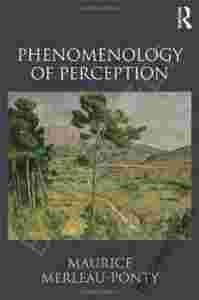|
First published in 1945, Maurice Merleau-Ponty's
monumental Phenomenologie de la perception signalled the
arrival of a major new philosophical and intellectual
voice in post-war Europe. Breaking with the prevailing
picture of existentialism and phenomenology at the time,
it has become one of the landmark works of
twentieth-century thought. This new translation, the
first for over fifty years, makes this classic work of
philosophy available to a new generation of readers.
Phenomenology of Perception stands in the great
phenomenological tradition of Husserl, Heidegger, and
Sartre. Yet Merleau-Ponty's contribution is decisive, as
he brings this tradition and other philosophical
predecessors, particularly Descartes and Kant, to
confront a neglected dimension of our experience: the
lived body and the phenomenal world. Charting a bold
course between the reductionism of science on the one
hand and ''intellectualism'' on the other, Merleau-Ponty
argues that we should regard the body not as a mere
biological or physical unit, but as the body which
structures one's situation and experience within the
world.Merleau-Ponty enriches his classic work with
engaging studies of famous cases in the history of
psychology and neurology as well as phenomena that
continue to draw our attention, such as phantom limb
syndrome, synaesthesia, and hallucination. This new
translation includes many helpful features such as the
reintroduction of Merleau-Ponty's discursive Table of
Contents as subtitles into the body of the text, a
comprehensive Translator's Introduction to its main
themes, essential notes explaining key terms of
translation, an extensive Index, and an important
updating of Merleau-Ponty's references to now available
English translations. Also included is a new foreword by
Taylor Carman and an introduction to Merleau-Ponty by
Claude Lefort. Translated by Donald A. Landes. |
|

